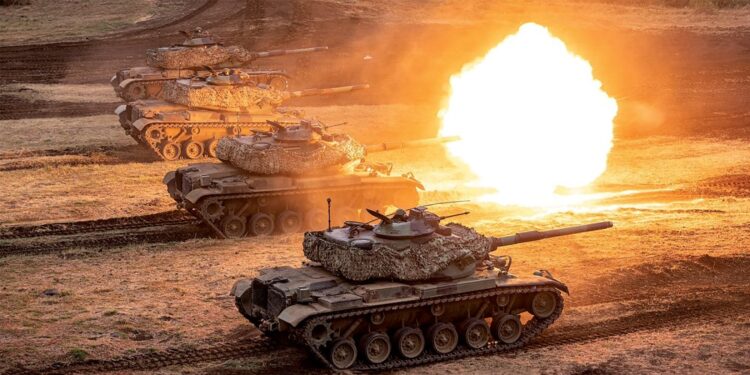War is often portrayed as a matter of national security, patriotism, and the defense of values. Yet, beneath the rhetoric lies a hard economic reality: war is also a business – one of the most lucrative industries in human history. From the production of weapons to the reconstruction of cities, conflict generates immense wealth for certain actors, while inflicting devastation on others. It is a sprawling global enterprise that intertwines political agendas, corporate interests, and technological innovation, shaping the very fabric of international relations.
The historical roots of war as a business
War has been intertwined with commerce for as long as human societies have existed. In ancient times, military campaigns were often motivated as much by economic gain as by defense. Empires such as Rome and the Mongol Khanates expanded not only to secure borders but also to control trade routes, plunder resources, and extract tribute. During the Age of Exploration, war and commerce merged even more explicitly.
European colonial powers – Britain, Spain, Portugal, France, and the Netherlands – used military force to secure overseas territories, establish monopolies, and exploit resources. Privateers, mercenaries, and chartered companies like the British East India Company functioned as both commercial and military enterprises, often with state backing. The Industrial Revolution transformed the nature of warfare. Mechanized production enabled the mass manufacture of weapons, ammunition, and military equipment.
Arms production became a permanent, large-scale industry rather than an ad hoc mobilization during wartime. This shift laid the foundation for the modern military-industrial complex – a term popularized by U.S. President Dwight D. Eisenhower in 1961 to describe the entrenched relationship between governments, armed forces, and defense contractors.
The global war economy today
The contemporary business of war operates on a vast and interconnected scale. The global defense industry is estimated to be worth over $2 trillion annually when including military spending, arms trade, and security services. The U.S., China, Russia, India, and Saudi Arabia are among the largest military spenders, accounting for the majority of global expenditure. Key components of the modern war economy include:
- Defense manufacturing: Production of weapons, vehicles, aircraft, ships, and surveillance systems by companies such as Lockheed Martin, BAE Systems, Raytheon, and Northrop Grumman.
- Private Military Contractors (PMCs): Corporations like Wagner Group, Blackwater (now Academi), and DynCorp providing armed personnel, logistics, and training services.
- Arms trade: International sales of military equipment, often involving complex geopolitical alliances and negotiations.
- Cyberwarfare and surveillance technologies: Digital tools for espionage, hacking, and intelligence gathering.
- Post-war reconstruction contracts: Companies profiting from rebuilding infrastructure after conflicts, as seen in Iraq and Afghanistan.
How war generates profits
The profitability of war lies in its capacity to create sustained demand for goods and services. Unlike consumer markets, where demand fluctuates with trends and economic conditions, defense spending is often insulated from downturns due to its political and strategic importance.
a. Direct profits from arms sales
Defense manufacturers make billions supplying armies with tanks, fighter jets, drones, and ammunition. Government contracts, often worth hundreds of millions, are awarded through competitive bidding – or, in some cases, politically influenced deals. Arms are sold both domestically and internationally, with exports playing a major role in the business model.
b. Wartime logistics and services
Modern militaries outsource many functions – from catering to fuel supply to intelligence analysis. These contracts can be exceptionally lucrative for logistics companies and PMCs. For example, during the Iraq War, Halliburton and its subsidiary KBR earned billions providing support services to U.S. forces.
c. Reconstruction and development
Post-conflict environments are paradoxical: the same actors involved in destruction often participate in rebuilding. Infrastructure firms, engineering companies, and consultancies secure contracts funded by international aid or occupying governments. The reconstruction of Kuwait after the 1991 Gulf War and Iraq after 2003 are prime examples.
d. Resource extraction
Some conflicts are directly tied to control over resources such as oil, gas, minerals, and rare earth elements. In such cases, war enables corporations to secure resource rights under favorable terms, often through deals with sympathetic governments or warlords.
The role of governments and policy
Governments are both the largest customers in the war economy and key facilitators of its growth. Military spending is justified through defense policy, national security concerns, and geopolitical ambitions. In many cases, defense budgets are shielded from austerity measures, reflecting the political influence of the defense sector. In countries like the United States, defense spending is spread across numerous states and districts, creating local economic dependence on military contracts.
This “political engineering” ensures bipartisan support for defense appropriations, as cutting a contract would mean job losses in a politician’s constituency. Export controls, arms embargoes, and international treaties are meant to regulate the arms trade, but enforcement is inconsistent. Loopholes, exemptions, and covert operations often allow weapons to reach conflict zones despite official restrictions.
Private military contractors and the privatization of war
One of the most significant shifts in recent decades has been the privatization of military functions. PMCs operate in legal grey areas, often outside the direct accountability mechanisms applied to national armed forces. Advantages for governments include:
- Reducing the political cost of casualties by outsourcing combat roles.
- Accessing specialized skills quickly.
- Flexibility in deploying forces without formal declarations of war.
However, PMCs raise serious concerns over transparency, accountability, and the potential for human rights abuses. The 2007 Nisour Square massacre in Baghdad, involving Blackwater personnel, underscored these risks.
War as an engine of technological innovation
It is undeniable that war has historically accelerated technological progress. Radar, jet engines, nuclear power, GPS, and the internet all have military origins. The defense sector invests heavily in research and development, often leading to civilian applications. However, this innovation is a double-edged sword. While some technologies bring peacetime benefits, others – such as autonomous weapons or advanced cyberwarfare tools – pose ethical dilemmas and risks of misuse.
The human cost and ethical dilemmas
The business of war thrives on instability, yet the costs are borne primarily by civilians. Beyond the immediate destruction, war devastates economies, displaces populations, and entrenches cycles of poverty and violence. Ethical concerns include:
- Perverse incentives: If war is profitable for certain actors, there may be implicit or explicit incentives to prolong or initiate conflicts.
- Lack of accountability: PMCs and arms dealers often operate beyond the reach of legal systems.
- Arms proliferation: Weapons sold to allies today may end up in the hands of hostile actors tomorrow.
War profiteering: Legal and illegal dimensions
War profiteering refers to making excessive profits from conflict, often through overpricing, corruption, or exploiting shortages. While profiteering has a long history – famously criticized during the U.S. Civil War – it continues today. Scandals have emerged over inflated contracts, substandard equipment, and kickbacks in Iraq, Afghanistan, and beyond. International law prohibits certain forms of profiteering, but enforcement remains weak. The opaque nature of defense contracting, combined with the secrecy of military operations, makes oversight challenging.
The future of the business of war
Looking ahead, several trends are likely to shape the war economy:
- Automation and AI in warfare: Autonomous drones, robotic soldiers, and AI-driven surveillance systems will reduce reliance on human troops but raise new ethical questions.
- Cyberwarfare expansion: Cyberattacks on infrastructure and information systems are becoming central to geopolitical conflict.
- Space militarization: Competition for dominance in space could create a new arms race in satellites, orbital weapons, and space-based surveillance.
- Climate-driven conflicts: Scarcity of water, food, and habitable land may spark new resource wars, creating fresh opportunities for war profiteering.
Conclusion
The business of war is a paradox. On one hand, it drives technological innovation, sustains millions of jobs, and can even contribute to national economic growth. On the other, it thrives on destruction, perpetuates instability, and often places profit above human welfare. Understanding war as an economic system is essential for policymakers, scholars, and citizens alike.
It reveals that ending war is not merely a matter of diplomacy or military strength – it also requires addressing the financial incentives that make conflict profitable. Until those incentives change, the machinery of the war economy will continue to turn, powered by the lives and resources of those caught in its path.

































































































































































































